
/ Mediterranean
Sustaining Lebanon’s Coast: A Holistic Approach
The Integrated Management Plan for the Damour area in Lebanon under the GEF UNEP/MAP Programme, sets the paradigm for system-wide perspectives across geographical zones in natural resources management, promoting sustainable development, building climate resilience and protecting habitats across the Mediterranean region.
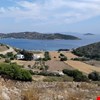
/ Mediterranean
An island community mobilising to save water in Lipsi, Greece
Reckitt's Finish and GWP-Med implement the 4th year of the "Water Is In Our Hands" initiative in the Greek island of Lipsi, providing concrete tools to combat water scarcity and save water at home.
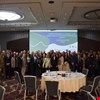
/ Mediterranean
The MedProgramme continues its efforts to assist Lebanon in advancing with sustainable natural resources management and water, food and energy security
The 2nd Multi-stakeholder Consultation in Lebanon consolidated MedProgramme’s engagement towards sustainability in the Mediterranean Region through the promotion of synergistic efforts among the Water-Energy-Food-Ecosystems (WEFE) Nexus approach, the preparation of a strategy for Integrated Coastal Zone Management (ICZM) and conjunctive surface and groundwater management interventions.
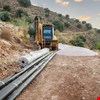
/ Mediterranean
Application of tangible WEFE Nexus nature-based solutions in 6 pilot farms in Jordan and Palestine is underway under the MENA Matchmaker II project
The Union for the Mediterranean and SIDA funded ‘MENA Water Matchmaker II' project which is implemented by GWP-Med, is applying innovative nature-based Water-Energy-Food-Ecosystems Nexus solutions in 6 farms in Jordan and Palestine in order to improve water management and enhance climate resilience in some of the most water scarce areas in the world.
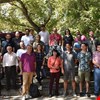
/ Mediterranean
A field trip to Greece's agricultural heartland uncovers WEFE Nexus challenges and opportunities.
Organised within the framework of the Horizon 2020 REXUS project, whereby
GWP-Med is leading the Communication and Dissemination Component, the Pinios field trip laid bare the challenges and opportunities of Greece's most productive agricultural basin.
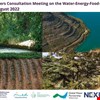
/ Mediterranean
MedProgramme: Mapping opportunities and benefits of the WEFE Nexus approach for environmental security in Lebanon
Participants in the 1st Multi-Stakeholders Consultation Meeting on the Water-Energy-Food-Ecosystems (WEFE) Nexus organised on the framework of the "GEF/UNEP MedProgramme: Enhancing Environmental Security", acknowledged the need for a better integration of approaches related to the four sectors, including through the establishment of a systematic dialogue among the relevant actors.
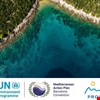
/ Mediterranean
The MedProgramme: Enhancing Environmental Security in the Mediterranean
Nine countries from the Mediterranean and a plethora of partners have joined forces in one programme that aims to reduce major transboundary environmental stresses in the Mediterranean coastal areas, strengthen climate resilience and water security and improve the health and livelihoods of coastal populations.
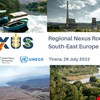
/ Mediterranean
The Nexus in South-East Europe: Achievements and options for next steps discussed during Regional Roundtable
Stakeholders from all Economies in South-East Europe (SEE) and representing the sectors of water resources management, agriculture, energy and environmental protection, participated in the 4th Regional Nexus Roundtable in SEE that was held on 26 July 2022 in hybrid mode in Tirana and online.
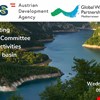
/ Mediterranean
Towards a cross-sectoral roadmap to improve cooperation in the management of natural resources in the Drina River Basin
At the 3rd and final meeting of the Steering Committee for Nexus activities in the Drina River basin, the importance of enhancing cross-sectoral and transboundary coordination in the basin was stressed.

/ Mediterranean
Coming together for sustainable development in the Drin River Basin; Five key lessons from Southeastern Europe for successful transboundary cooperation
Covering a geographical area of 20,361 km2 connecting 5 countries and 5 water bodies, the Drin Basin in Southeast Europe sustains unique ecosystems and endemic biodiversity, while supporting the economic activity of over 1.6 million people who call it home. However, four transboundary problems - deterioration of water quality, variability of hydrological regime, biodiversity degradation and disturbance of the natural sediment transport regime - are threatening the basin’s health with a direct impact on both the environment and livelihoods.